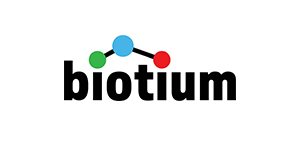MUC1 / CA15-3 / EMA / CD227 (Epithelial Marker) (MUC1/2278R), CF740 conjugate, 0.1mg/mL
MUC1 / CA15-3 / EMA / CD227 (Epithelial Marker) (MUC1/2278R), CF740 conjugate, 0.1mg/mL
SKU
BTMBNC742278-500
Packaging Unit
500 uL
Manufacturer
Biotium
Availability:
loading...
Price is loading...
Description: This MAb reacts with MUC1, a large transmembrane glycoprotein expressed on the ductal surface of normal glandular epithelia. It is used as tracer agent in CA15.3 assays. The extracellular domain of MUC1 largely consists of a highly conserved, O-glycosylated 20 amino acids tandem repeat which can occur 30-100 times per molecule depending on the length of the allele involved. In the vast majority of human carcinomas this protein is up-regulated and poorly glycosylated and appears on the cell surface in a non-polarized fashion. The dominant epitope of this MAb involves both amino acids as well as sugar moieties. Its epitope is destroyed by desialylation i.e. treatment with Neuraminidase.Primary antibodies are available purified, or with a selection of fluorescent CF® Dyes and other labels. CF® Dyes offer exceptional brightness and photostability. Note: Conjugates of blue fluorescent dyes like CF®405S and CF®405M are not recommended for detecting low abundance targets, because blue dyes have lower fluorescence and can give higher non-specific background than other dye colors.
Product Origin: Animal - Oryctolagus cuniculus (domestic rabbit), Bos taurus (bovine)
Conjugate: CF740
Concentration: 0.1 mg/mL
Storage buffer: PBS, 0.1% rBSA, 0.05% azide
Clone: MUC1/2278R
Immunogen: Recombinant full-length human MUC1 protein
Antibody Reactivity: CA15-3/CD227/EMA/MUC1
Entrez Gene ID: 4582
Z-Antibody Applications: IHC, FFPE (verified)
Verified AB Applications: IHC (FFPE) (verified)
Antibody Application Notes: Higher concentration may be required for direct detection using primary antibody conjugates than for indirect detection with secondary antibody/Immunohistology (formalin): 0.5-1 ug/mL for 30 minutes at RT/Staining of formalin-fixed tissues requires boiling tissue sections in 10 mM citrate buffer, pH 6.0, for 10-20 minutes followed by cooling at RT for 20 minutes/Optimal dilution for a specific application should be determined by user
Product Origin: Animal - Oryctolagus cuniculus (domestic rabbit), Bos taurus (bovine)
Conjugate: CF740
Concentration: 0.1 mg/mL
Storage buffer: PBS, 0.1% rBSA, 0.05% azide
Clone: MUC1/2278R
Immunogen: Recombinant full-length human MUC1 protein
Antibody Reactivity: CA15-3/CD227/EMA/MUC1
Entrez Gene ID: 4582
Z-Antibody Applications: IHC, FFPE (verified)
Verified AB Applications: IHC (FFPE) (verified)
Antibody Application Notes: Higher concentration may be required for direct detection using primary antibody conjugates than for indirect detection with secondary antibody/Immunohistology (formalin): 0.5-1 ug/mL for 30 minutes at RT/Staining of formalin-fixed tissues requires boiling tissue sections in 10 mM citrate buffer, pH 6.0, for 10-20 minutes followed by cooling at RT for 20 minutes/Optimal dilution for a specific application should be determined by user
| SKU | BTMBNC742278-500 |
|---|---|
| Manufacturer | Biotium |
| Manufacturer SKU | BNC742278-500 |
| Package Unit | 500 uL |
| Quantity Unit | STK |
| Reactivity | Human |
| Clonality | Recombinant |
| Application | Immunohistochemistry |
| Isotype | IgG |
| Host | Rabbit |
| Conjugate | Conjugated, CF740 |
| Product information (PDF) | Download |
| MSDS (PDF) | Download |

 Deutsch
Deutsch







